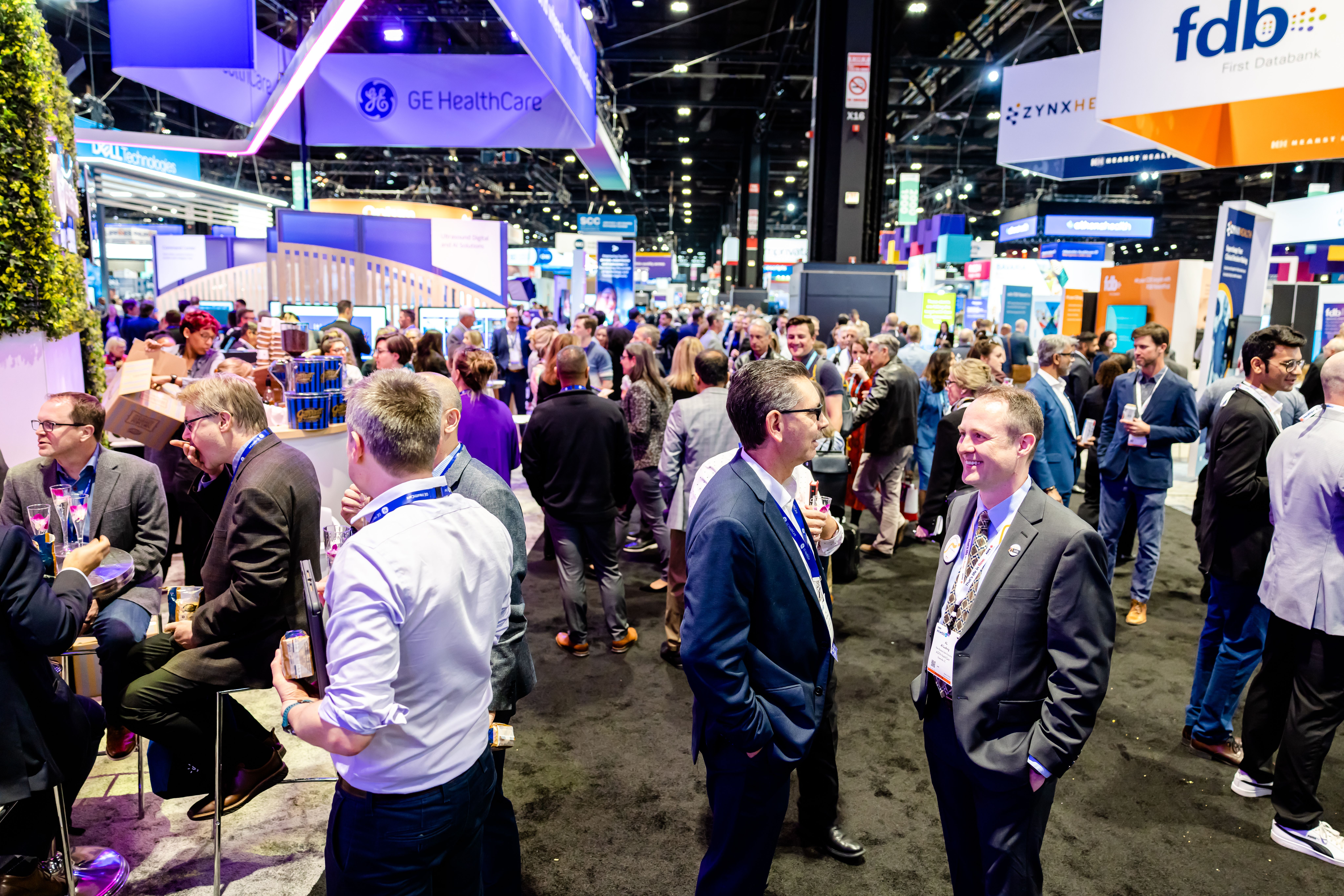Thousands of health leaders from around the world are traveling to Orlando this week for the HIMSS Global Health Conference and Expo.
Many pre-conference sessions are taking place today, but the conference begins in earnest on Tuesday and continues through Friday.
More than 30,000 people are expected at this year’s conference, roughly matching the attendance at last year’s event in Chicago, according to Hal WolfPresident and CEO of the Healthcare Information and Management Systems Society (HIMSS).
“It’s really phenomenal,” Wolf says.
This is also the first annual event since HIMSS entered into an agreement with Informa Markets to manage the conference and exhibition last August. HIMSS continues to oversee content and programming development.
More than 4,000 leaders and executives will attend the conference. Wolf notes that thousands of other healthcare leaders across the industry, including chief information officers, chief medical officers, nurse informaticists and physician leaders, participate in the event each year.
Additionally, the conference also saw a new influx of people working in operations, professional development and human resources.
Many health technology companies are coming to land new contracts and partnerships at HIMSS. “Another consistent tone we hear from HIMSS is that I go there to do business. I do a lot of business,” he says.
But Wolf also touts the HIMSS conference’s educational opportunities as a key part of the event’s identity.
“One of the significant benefits of HIMSS, which is different from some other places, is that people really come there to learn as much as anything else,” he says. “You have hundreds of programs.”
In conversation with the Chief Healthcare Executive®, Wolf describes some highlights of the annual event, including conversations on AI, cybersecurity and a host of other topics. Wolf says the conference is designed to highlight the latest technologies, but also to take these new tools and use them to improve health care.
“You have everything from the strategic level to the implementation level to all the new toys and technologies and everything else that has to work at scale,” Wolf says. “And if we can’t deliver them at scale…they’re interesting, but they may not be relevant. And relevance is what HIMSS is all about. (See part of our conversation with Hal Wolf. Story continues below.)
An abundance of AI
Expect lots of conversations about using artificial intelligence in healthcarehighlighting its potential as well as certain ethical guidelines for using it responsibly.
“There will be a lot of discussion about AI,” Wolf says.
Some discussions will focus on the operational use of AI to provide healthcare organizations with better information, such as capacity projections, that can influence planning. “AI creates cumulative views of the operational window and gives operational leaders insights they would normally get in hindsight,” says Wolf.
Beyond discussions about AI improving business, the conference will explore how AI can be used to improve patient care.
“We really have a lot of discussions about this. …how we use artificial intelligence, in terms of clinical decision support, drug effectiveness recommendations and these kinds of very important clinical tools that influence or give suggestions about what doctors might want do,” says Wolf.
Previous sessions have examined the potential harms associated with inappropriate use of AI, including the possibility that AI tools could offer recommendations reflecting racial bias.
“And this is where we need to be very aware of bias,” he adds. “This is where effectiveness is examined with the greatest care. And so we tend to think about this, at a really higher level. And that was the keynote last year. And you’ll hear bits of it, absolutely embedded everywhere,” Wolf says.
The conference will explore practical uses of AI in the healthcare ecosystem, as well as its appropriate use. “AI is a tool, not a target,” he says.
More than 30,000 people are expected to attend the HIMSS Global Health Conference and Expo. (Image: HIMSS)

Cyber security
The annual conference offered numerous sessions on cybersecurity. The light at the cyberattack on Change Healthcare and other high-profile breaches, cybersecurity sessions seem popular again. “Now and forever,” Wolf said.
“People are going to attack the government, they’re going to attack businesses, they’re going to attack hospitals,” Wolf said.
Cybersecurity is poised to remain an important part of healthcare, especially as organizations become more data-driven.
“We need this information to drive our applets and our capabilities, and we have a lot of very important thinking and knowledge that is stored in our systems,” Wolf says.
Other highlights
The HIMSS conference features “Venture Connect,” which aims to strengthen collaboration between investors, entrepreneurs and suppliers. Wolf touted an overhaul of Venture Connect this year.
“It’s really about focusing on how we advance this innovation and connect it to the individuals who will play a key role in their thinking and where they’re going to go,” Wolf says.
The HIMSS Global Health Conference and Expo attracts healthcare leaders from around the world.

Additionally, some familiar programs and discussions will return.
“You’ll see the things you’d expect as well, interoperability, nurse informaticists, data science, predictive analytics, those are all foundational program tracks,” Wolf says. “Because these are the heart and soul and heart of what happens on the ground every day.”
The conference will also include discussions on health equity and expanding access to health care.
“It all starts with our vision to realize the full health potential of every human being, everywhere,” says Wolf.
Wolf says the opportunity to improve access and quality of health care is what gets him out of bed in the morning.
“Many people also live in the shadows of some of the world’s largest hospitals and don’t have access to them,” says Wolf. “Digital health is one of those capabilities that, in the short term and over time, helps impact health equity, providing access to people who may not be able to get through the door, but who don’t even need to walk through the door. »
Wolf says he is “extraordinarily proud of the conference.” But he’s also proud of the growth of the HIMSS organization. Since he became CEO more than six years ago, HIMSS’s membership has grown from fewer than 80,000 to more than 120,000.
Over the years, HIMSS has also become a trusted resource for health system and government leaders, Wolf says.
“We have an impact on a global scale,” Wolf says. “People are constantly turning to HIMSS.”


